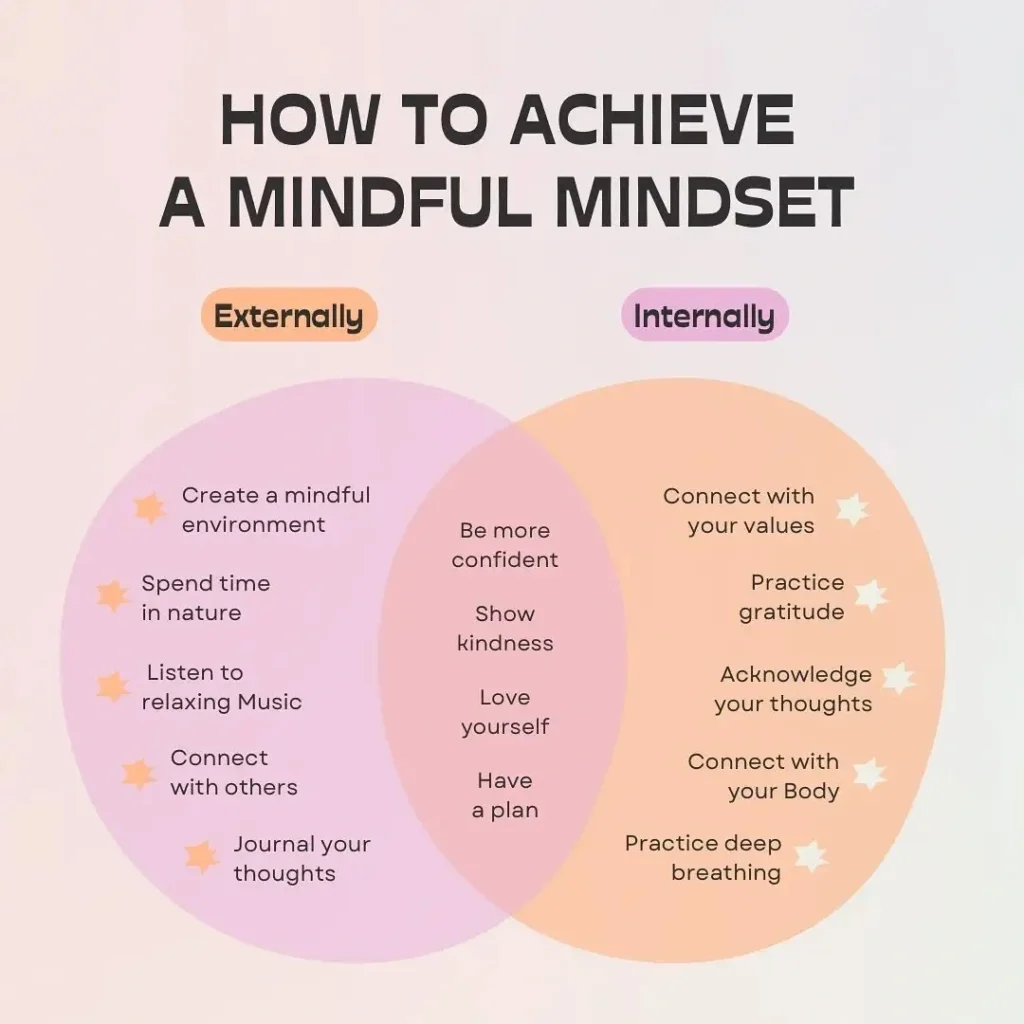Breathing is something we do every day without much thought but it holds the key to unlocking a peaceful, healthier and more balanced life. Mindful breathing a practice rooted in ancient traditions and modern science is gaining attention for its transformative effects on mental and physical well-being. By carefully focusing on the breath we can tap into cutting-edge mindfulness practices that reduce stress improve self-awareness and promote emotional resilience. We’ll explore why mindful breathing matters how it connects to tools like the mindful self-compassion book and its role in improving mental health courses and daily life. We’ll also dive into a case study to see its real-world impact.
What Mindful Breathing and Why It Matter
Mindful breathing is the act of paying full attention to your breath its go, depth and sensation without judgment. It’s a cornerstone of breathwork a practice that uses controlled breathing to influence the body and mind. Why does it matter? Research shows that mindful breathing controls the nervous system, lowering important levels and easing anxiety in the subconscious mind. This simple but powerful technique is often featured in mental health courses and books like the Mindful Self-Compassion by Kristin Neff and Christopher Germer a must-read mindful self-compassion book.
When practiced regularly mindful breathing becomes a gateway to cutting-edge mindfulness practices helping individuals manage stress and improve focus. It’s not just about relaxation it’s about rewiring your mind over mood to face challenges with knowledge. Whether you are exploring guided sleep meditation or seeking to master mental health this practice offers a foundation for growth.
How Does Mindful Breathing Benefit Your Mental Health
- The benefits of mindful breathing extend far beyond a moment of calm.
- It’s a tool to struggle with the anxiety subconscious mind which often fuels restlessness and overthinking.
- Studies indicate that breathwork increases oxygen flow to the brain improving mental function and emotional regulation key topics in mental health courses.
- The mindful self-compassion book emphasizes this teaching readers how to pair breathing with self-kindness to heal emotional wounds.
- For those struggling with sleep guided sleep meditation often includes mindful breathing to quiet the mind.
- By focusing on the breath, you shift attention away from racing thoughts a technique rooted in cutting-edge mindfulness practices.
- This makes it easier to master mental health and cultivate a sense of peace as highlighted in Mindful Self-Compassion.
- The book’s approach to mind over mood shows how breath can transform negative emotions into acceptance.
Mindful Breathing Improves Physical Health
The impact of mindful breathing is not limited to the mind it also improves physical health. Breathwork lowers blood pressure, improves lung capacity and reduces muscle tension. This is why it’s attached to mental health courses and recommended in the mindful self-compassion book. By syncing breath with intention, you activate the relaxing nervous system signaling the body to relax a process important for developing mental health.
For example, individuals using guided sleep meditation often report better rest thanks to mindful breathing. This practice also counters the physical toll of the anxiety subconscious mind such as shallow breathing or a racing heart. The mindful self-compassion book ties this to self-care showing how breathwork nurtures both body and soul. It’s a cutting-edge mindfulness practice that bridges the gap between mental and physical well-being.
Mindful Breathing Solve Everyday Problems
Life is full of stressors work deadlines, family demands and personal concerns. Mindful breathing offers a practical solution. It’s portable, free and requires no special equipment making it available to everyone. The mindful self-compassion book underscores this teaching readers how to use their breath to pause and respond rather than react. This aligns with mind over mood a concept that empowers you to take control of emotional causes.
Imagine you are stuck in traffic feeling the anxiety subconscious mind creep in. A few minutes of mindful breathing as taught in mental health courses can shift your perspective. It’s also a core element of guided sleep meditation helping you unwind after a busy day. By including cutting-edge mindfulness practices, you can turn anxious moments into opportunities for growth a lesson reinforced in Mindful Self-Compassion.
Case Study: Ava’s Journey with Mindful Breathing

Let’s look at Ava a 34-year-old marketing manager struggling with long-term stress and insomnia. Her anxiety and subconscious mind kept her awake replaying work worries. She enrolled in a mental health course that introduced mindful breathing and recommended the mindful self-compassion book. Unsure at first, Ava began practicing breathwork for 10 minutes daily focusing on slow deep inhales and exhales.
Within 2 weeks she noticed a shift. Her mind over mood improved and she felt less reactive to feedback at work. Pairing guided sleep meditation with mindful breathing Ava started sleeping through the night a breakthrough after months of restlessness. She credits the mindful self-compassion book for teaching her to treat herself kindly during this process. By embracing cutting-edge mindfulness practices Ava transformed her mental health proving the power of breath.
How Does Mindful Breathing into Self-Compassion
Self-compassion and mindful breathing are deeply connected as explored in Mindful Self-Compassion. The mindful self-compassion book explains how breathing with awareness develops kindness toward oneself, especially during tough times. This teamwork is a signature of cutting-edge mindfulness practices blending breathwork with emotional healing.
When you practice mindful breathing, you create space to acknowledge pain without judgment a key lesson from the mindful self-compassion book. This helps master mental health by reducing self-assess a common challenge to well-being. Whether through guided sleep meditation or daily reflection this practice reinforces mind over mood making it easier to navigate life’s ups and downs.
Practicing Mindful Breathing

- Now’s the time to start mindful breathing simple, profound and instantly relieving.
- The mindful self-compassion book blends breathwork with resilience-building exercises.
- Featured in mental health courses and cutting-edge mindfulness practices it suits all levels.
- Try five minutes daily, focusing on your breath or pair it with guided sleep meditation.
- As you master mental health the anxiety subconscious mind fades leaving calm and clarity.
Mindful Breathing Impact
Mindful breathing is more than a trend it’s a life-changing practice that nurtures both mind and body. From easing the anxiety subconscious mind to improving mind over mood it’s a cornerstone of cutting-edge mindfulness practices. The Mindful Self-Compassion book like Mindful Self-Compassion ties it to self-love while mental health courses and guided sleep meditation make it practical. Ava’s story shows its real-world impact proving that breathwork can transform lives. Start today, and discover why mindful breathing is important for developing mental health.
FAQs
What is mindful breathing?
It’s the practice of focusing on your breath with awareness to promote relaxation and well-being.
How does the mindful self-compassion book help?
It combines mindful breathing with self-kindness techniques to improve emotional resilience.
Can guided sleep meditation improve sleep?
Yes, it uses mindful breathing to calm the mind and promote restful sleep.
Why are mental health courses recommending breathwork?
Breathwork reduces stress and enhances focus making it vital for mental health.
How does mind over mood relate to mindful breathing?
It helps you control emotions by using breath to shift your mindset.

Thank you for your insightful comment! A well-trained yoga teacher truly makes a difference in guiding both mental and physical well-being especially in challenging times.